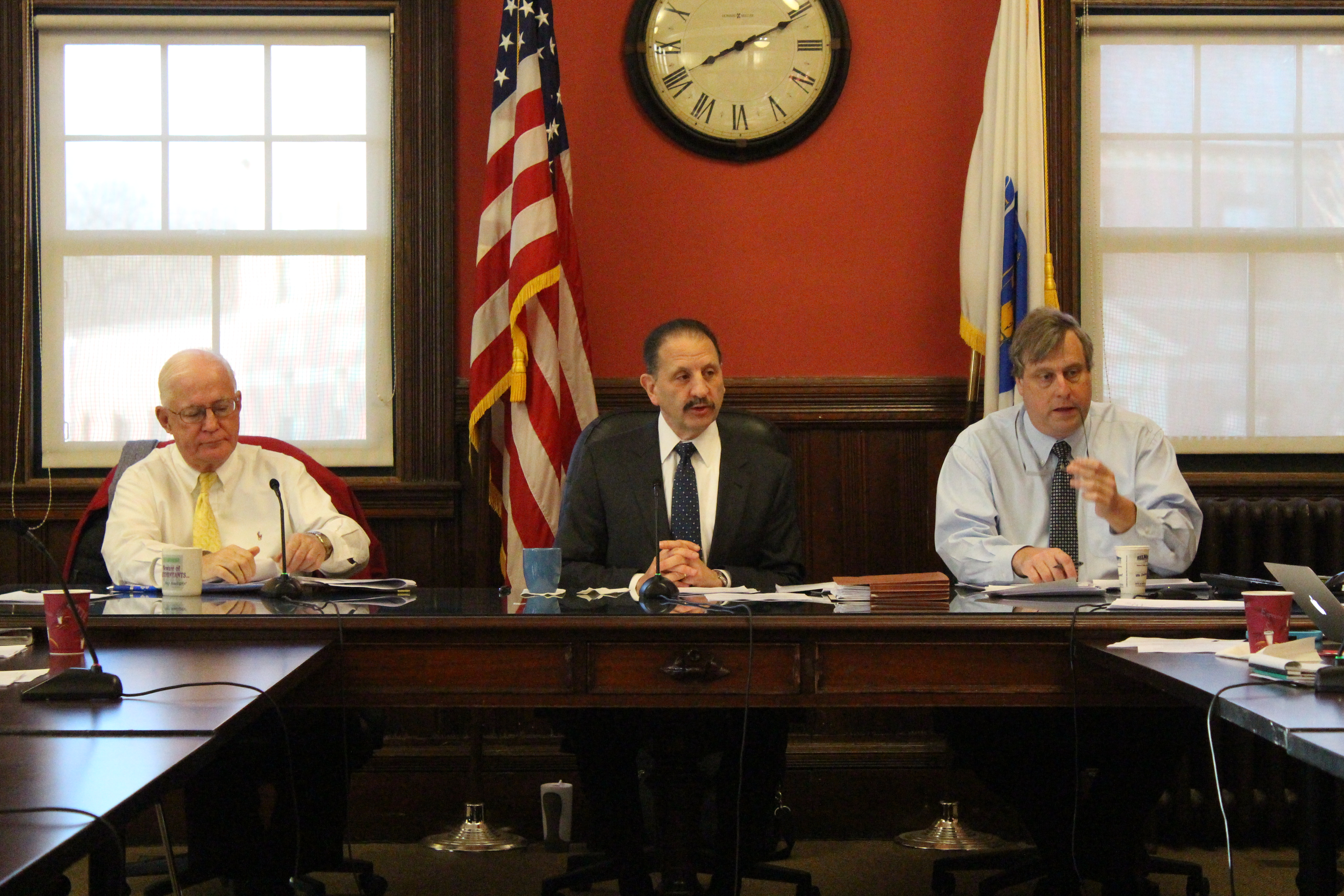After a year of meetings and extensive research, the town’s Financial Task Force voted provisionally to recommend the Belmont Board of Selectmen to accept a $4.5 million Proposition 2 1/2 budget override to stabilize the town and school budgets over the next three years.
The recommendation by the 13 member group will be presented to the Selectmen at its scheduled Monday, Jan. 26 meeting in Belmont Town Hall at 8 a.m. The first date the Selectmen can accept the task forces’ proposal and set a date to vote on the measure at its Feb. 2 meeting.
Mark Paolillo, the task force chair and a member of the Board of Selectmen, said the override vote should “absolutely” be on the Town Election ballot on Tuesday, April 7.
“We want the most residents voting on the measure,” Paolillo told the Belmontonian Friday.
A more detailed article on the proposed Prop 2 1/2 Budget Override will be in the Belmontonian on Monday morning, Jan. 26.
If successful, the property tax bill on a house valued at $844,000 – the “average” value of residential property in the town – will increase by approximately $675, according to Town Treasurer Floyd Carman.
The most recent attempted override in Belmont was in June of 2010 when a $2 million measure was defeated 3,431 to 3,043 with 40 percent of eligible residents voting. The most recent successful override measure occurred in June, 2002 when voters OK’ed $2.4 million for operating costs, 2,938 to 2,728.
“This is not an easy request,” Paolillo said of asking residents to find the money to meet a shortfall in revenue.
The need for an override is due to “a perfect storm” of limited current sources of revenue set against mounting expenses and the needs of future capital projects, he said.
The most significant cost drivers facing the town is within the School District as exploding enrollment numbers – more than 300 children have entered the district in the past two years – and skyrocketing expenditures associated with Special Education and other state mandated programs show no end to their rapid increases, Belmont Superintendent John Phelan told Friday’s meeting.
(Read about the current $500,000 budget deficit the school district is facing here.)
While expenses increase, the task force found “there are no magic bullets” to fill the expanding gap between what’s coming into Belmont’s coffers and the money rushing out, said member Paul Lisanke.
With 80 percent of the town’s revenue coming from property taxes and a significant 9 percent from state aid which has been decreasing in real terms for the past three decades, the areas to find extra cash are limited and not significant enough to raise the money needed.
In addition to the operating budget, the town must be prepared to sink some big bucks into capital projects and repairs, according to Task Force member and Capital Budget’s Chair Anne Marie Mahoney. These include a new police station and Department of Public Works facility, preparing for new High School and increased money for roads and sidewalks.
“We are now talking about safety issues because we haven’t spent the money we should have,” said Mahoney.
According to the Task Force, the town will find itself in a cumulative fiscal chasm of $4,448,000 by fiscal 2017.
A successful override will allow the town to provide funds to the school district to meet the increase in enrollment, meet special education actual costs and maintain Belmont schools as a first-rate educational community. It will so provide funds for sidewalks and streets as well as make capital improvements neglected in the past years.
“We can’t look to the state or external measures to fix our problem,” said Paolillo. “We are clearly in a deficit in fiscal ’16, ’17 and ’18.”








There is overcrowding in all schools. We need to look at the rentals in Belmont. 2-3 families occupying houses and apartments, Why isn’t there some sort of school fee for residents who rent?????? They use the schools then leave! SIck of paying for it!
Ed. note: A separate fee on renters to send their children to local schools is illegal under the Massachusetts General Laws.